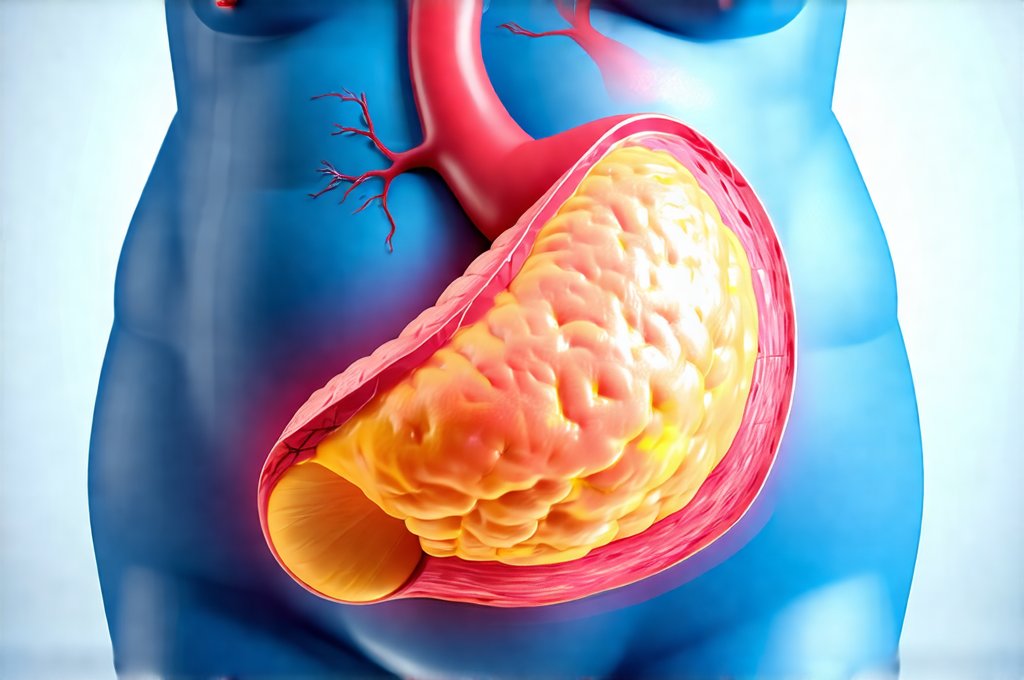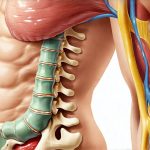Acid reflux, also known as gastroesophageal reflux disease (GERD), is a surprisingly common condition affecting millions worldwide. It occurs when stomach acid frequently flows back up into the esophagus—the tube connecting your mouth to your stomach—leading to symptoms like heartburn, regurgitation, and even difficulty swallowing. While many factors can contribute to this uncomfortable experience, there’s a clear correlation between being overweight or obese and experiencing more frequent and severe acid reflux. This isn’t merely coincidental; the physiological changes associated with carrying excess weight directly impact digestive function and increase the likelihood of acid escaping where it doesn’t belong.
The relationship is complex, extending beyond simple pressure on the stomach. It involves hormonal shifts, altered abdominal anatomy, and even subtle changes in eating habits often associated with a higher body mass index (BMI). Understanding why this connection exists is crucial not only for those currently struggling with acid reflux in children but also for preventative health measures—highlighting how lifestyle modifications can significantly impact digestive wellbeing. This article will delve into the specific mechanisms linking excess weight and acid reflux, exploring both the physiological reasons and practical considerations for managing symptoms and mitigating risk.
The Physiological Impact of Excess Weight
Carrying extra weight profoundly impacts several systems within the body, with the digestive system being particularly vulnerable. One of the primary ways obesity contributes to acid reflux is through increased intra-abdominal pressure. Imagine your abdomen as a contained space. When you gain weight, especially around the midsection, the contents within that space are compressed – including your stomach and esophagus. This increased pressure pushes stomach contents upwards towards the lower esophageal sphincter (LES), the muscular valve that normally prevents acid from flowing back up.
This isn’t just about physical squeezing. Excess abdominal fat also disrupts the normal functioning of the diaphragm—the muscle crucial for breathing, but also vital in supporting LES function. A weakened or overly-stressed diaphragm is less effective at maintaining pressure gradients and keeping the LES properly closed. Furthermore, visceral fat – the dangerous type stored around the organs – isn’t inert tissue. It actively releases hormones and inflammatory substances that can further impair digestive processes.
The hormonal changes are significant. Obesity often leads to insulin resistance, which impacts gastric emptying—the rate at which food leaves your stomach. Slower gastric emptying means more food remains in the stomach for longer periods, increasing the likelihood of acid production and reflux episodes. Additionally, levels of ghrelin (a hormone that stimulates appetite) and leptin (a hormone regulating energy balance) are often disrupted in individuals with obesity, contributing to altered eating patterns and potentially exacerbating digestive issues. This creates a vicious cycle where increased weight leads to hormonal imbalances which further contribute to reflux. It is important to understand food sensitivity as well, when considering dietary impacts.
Dietary Habits & Weight Gain: A Feedback Loop
It’s important to recognize that the relationship between weight and acid reflux isn’t one-directional. While excess weight causes or worsens reflux, lifestyle factors associated with weight gain often exacerbate the problem. People carrying extra weight might be more inclined towards consuming foods known to trigger reflux – high-fat meals, fried foods, caffeine, chocolate, and carbonated beverages are all common culprits. These foods relax the LES, making it easier for acid to escape, and also increase stomach acid production.
Furthermore, eating habits themselves can play a role. Overeating, eating quickly, and failing to chew food thoroughly put added strain on the digestive system. Many individuals struggling with weight management experience emotional eating or stress-induced overconsumption, further compounding these issues. This often results in larger meal sizes and less mindful digestion—a recipe for reflux symptoms. The key is breaking this feedback loop – addressing both dietary habits and weight management simultaneously to achieve long-term relief. In some cases, acid reflux in pregnancy can also impact dietary needs and choices.
Lifestyle Modifications for Reflux Management
Managing acid reflux when overweight doesn’t necessarily require dramatic, overnight changes. Small, consistent adjustments can make a significant difference. Here are some practical steps:
- Dietary Adjustments: Focus on smaller, more frequent meals instead of large portions. Identify and limit trigger foods – keep a food diary to pinpoint what specifically causes your symptoms. Prioritize lean proteins, whole grains, fruits, and vegetables.
- Weight Management Strategies: Even modest weight loss (5-10% of body weight) can significantly reduce reflux frequency and severity. This can be achieved through a combination of dietary changes and increased physical activity. Consider consulting with a registered dietitian or healthcare professional for personalized guidance.
- Lifestyle Changes: Avoid eating within 2-3 hours of bedtime. Elevate the head of your bed by 6-8 inches to help prevent nighttime reflux. Quit smoking, as nicotine weakens the LES. Manage stress through relaxation techniques like yoga, meditation, or deep breathing exercises. Understanding the role of stress is paramount in these situations.
The Role of Exercise in Digestive Health
Regular physical activity isn’t just beneficial for weight loss; it also directly impacts digestive health and can alleviate acid reflux symptoms. Exercise helps strengthen abdominal muscles, providing better support for the stomach and LES. It improves gut motility – the movement of food through the digestive tract – preventing stagnation and reducing acid production.
The type of exercise matters too. While cardiovascular exercises like walking, running, or swimming are excellent for overall health, incorporating strength training is particularly beneficial for strengthening core muscles. Low-impact exercises are often preferable to avoid putting excessive pressure on the abdomen. However, be mindful during intense workouts; certain exercises (like sit-ups or crunches) can actually increase intra-abdominal pressure and potentially worsen reflux in some individuals. Consider the benefits of fiber for optimal digestive health as well!
Seeking Professional Guidance & When To Worry
While lifestyle modifications can often manage mild to moderate acid reflux symptoms, it’s crucial to seek professional guidance when symptoms are severe or persistent. If you experience any of the following, consult with a doctor:
- Difficulty swallowing (dysphagia)
- Persistent heartburn that doesn’t respond to over-the-counter medications
- Regurgitation accompanied by nausea or vomiting
- Unintentional weight loss
- Black or bloody stools
- Chest pain that mimics heart attack symptoms.
A healthcare professional can accurately diagnose the underlying cause of your reflux, rule out other potential conditions, and recommend appropriate treatment options—which may include medication (like proton pump inhibitors or H2 receptor blockers) or, in some cases, surgical intervention. Remember, self-treating can mask serious problems, so prioritizing a proper diagnosis is essential for long-term health. The interplay between weight, diet, and digestive function is complex, but understanding these connections empowers individuals to take proactive steps towards better wellbeing. Furthermore, consider the impact of aloe vera as a potential soothing aid. Finally, remember that sugar intake can impact overall health and digestion.


















